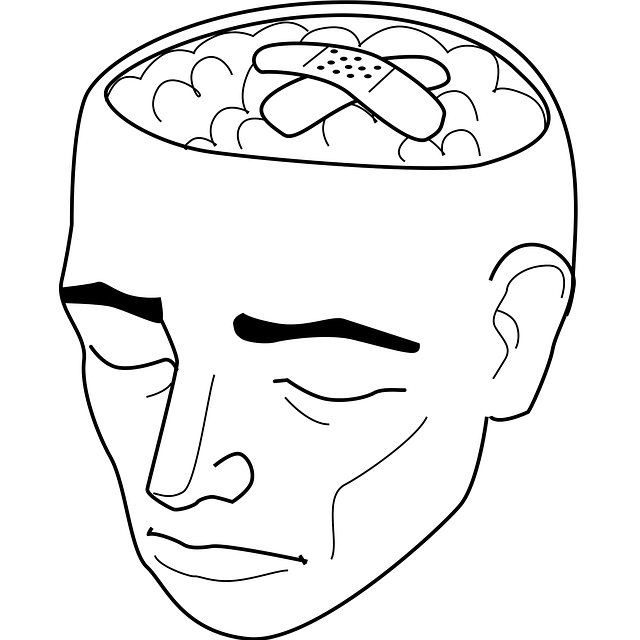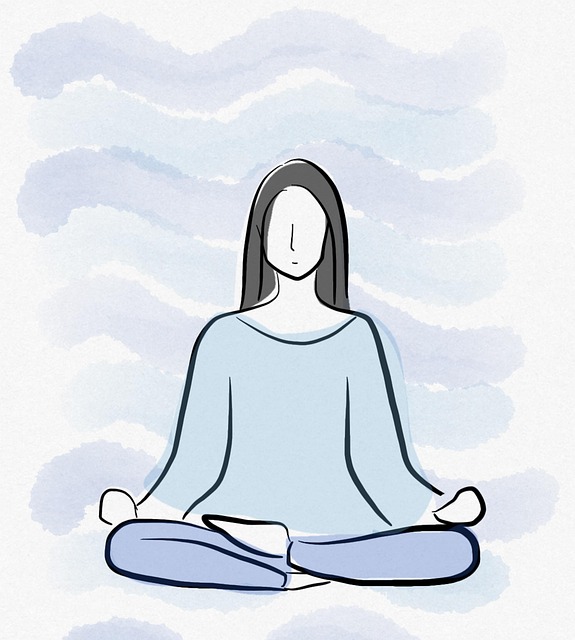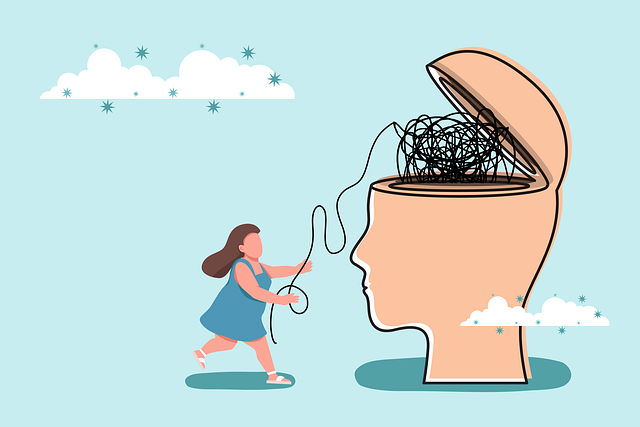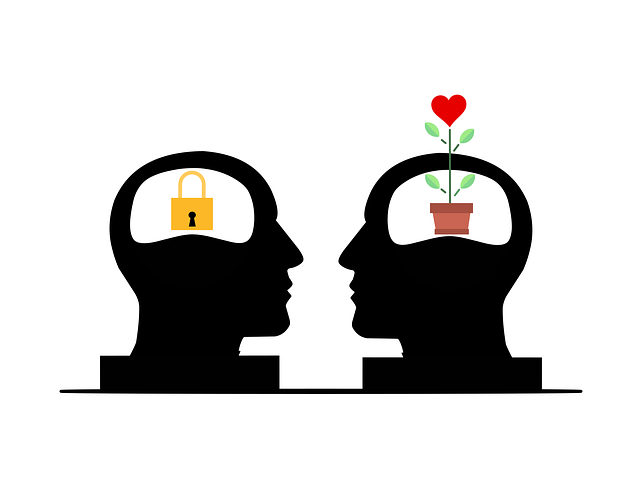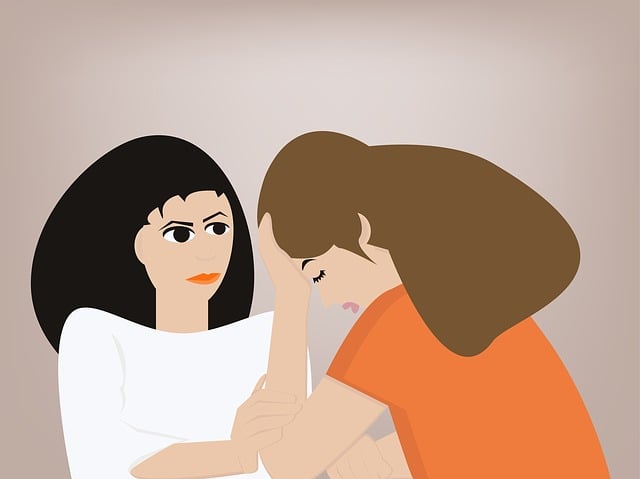Anxiety among young adults, especially transgender and gender-diverse individuals, requires specialized therapy for young adults focusing on gender-affirming care. CBT transforms negative thought patterns, mindfulness meditation grounds individuals in the present, and exposure therapy teaches them to manage triggers. Lifestyle adjustments including balanced diets, exercise, sleep, and mindfulness also improve mental wellbeing. These comprehensive approaches empower young adults to embrace their true identities while effectively managing anxiety symptoms.
Anxiety is a prevalent concern among young adults, but with the right tools and support, it can be effectively managed. This article explores various therapy options tailored specifically for this demographic, focusing on a gender-affirming perspective. We delve into evidence-based approaches like Cognitive Behavioral Therapy (CBT) to reframe negative thought patterns, as well as mindfulness practices to foster present-moment awareness. Additionally, exposure therapy and lifestyle adjustments are highlighted as powerful components of holistic care for young adults navigating anxiety.
- Understanding Anxiety in Young Adults: A Gender-Affirming Perspective
- Cognitive Behavioral Therapy (CBT): Shaping Thoughts and Behaviors
- Mindfulness and Meditation: Cultivating Present-Moment Awareness
- Exposure Therapy: Facing Fears with Supportive Care
- Lifestyle Adjustments for Enhanced Mental Wellbeing
Understanding Anxiety in Young Adults: A Gender-Affirming Perspective

Anxiety among young adults is a prevalent issue that deserves tailored understanding and support, especially when considering the unique experiences of individuals within the transgender and gender-diverse community. Gender-affirming care recognizes and validates an individual’s authentic self, which can be transformative in managing anxiety symptoms. Many young adults struggle with anxiety as they navigate identity formation and societal expectations, and therapy plays a pivotal role in this process.
Incorporating mindfulness meditation techniques into therapy for young adults has proven effective in reducing anxiety. This practice helps individuals focus on the present moment, fostering a sense of calm and grounding. Additionally, confidence-boosting activities and strategies can empower young adults to challenge negative thoughts and behaviors associated with anxiety. By combining these approaches, therapists can offer comprehensive support, enabling clients to find relief from anxiety symptoms while embracing their authentic selves.
Cognitive Behavioral Therapy (CBT): Shaping Thoughts and Behaviors

Cognitive Behavioral Therapy (CBT) is a highly effective therapy for young adults seeking to manage anxiety. By focusing on shaping thoughts and behaviors, CBT helps individuals challenge negative thought patterns and replace them with more positive and realistic ones. This process involves identifying distorted thinking, such as all-or-nothing thinking or catastrophizing, and learning to reframe these thoughts in a healthier manner.
In the context of gender-affirming care, CBT can be tailored to address unique concerns and experiences related to mental wellness. Developing a self-care routine is often integrated into therapy, empowering individuals with coping strategies for better mental health. Mental wellness coaching programs within this framework provide additional support, offering guidance during crises and helping clients maintain progress between sessions. Crisis intervention techniques taught in CBT ensure individuals have tools to manage intense anxiety or panic attacks promptly.
Mindfulness and Meditation: Cultivating Present-Moment Awareness

Mindfulness and meditation are powerful tools for cultivating present-moment awareness, which can significantly help in managing anxiety. In today’s fast-paced world, young adults often struggle with constant worries and a sense of being overwhelmed. Gender-affirming care, including therapy tailored to an individual’s unique needs, can provide a safe space to explore these feelings. By focusing on the here and now, mindfulness practices encourage individuals to observe their thoughts and emotions without judgment, fostering a deeper connection with themselves.
This self-care practice has been shown to enhance mental wellness and develop resilience against anxious thoughts. Through regular meditation, young adults can learn to navigate life’s challenges more calmly and effectively. Integrating mindfulness into daily routines, such as through dedicated apps or group sessions, offers accessible ways to improve overall mental health, especially in conjunction with other therapeutic approaches like social skills training for those seeking comprehensive anxiety management solutions.
Exposure Therapy: Facing Fears with Supportive Care

Exposure therapy is a powerful tool for young adults facing anxiety, particularly when combined with supportive, gender-affirming care. This approach involves gradually and safely exposing individuals to situations or objects that trigger their anxiety, helping them learn to manage their responses. By doing so, it empowers young people to confront their fears and reduce avoidance behaviors, which can be a significant impediment to overall mental wellness.
Community outreach programs focused on mental illness stigma reduction efforts play a crucial role in making exposure therapy accessible to this demographic. These initiatives ensure that support networks are in place, fostering an environment where individuals feel comfortable seeking help. Moreover, the development of mental wellness coaching programs can provide tailored guidance, offering strategies to navigate anxiety-provoking scenarios and promoting resilience. Such interventions not only assist young adults in managing their anxiety but also contribute to broader efforts to enhance mental health awareness and accessibility within communities.
Lifestyle Adjustments for Enhanced Mental Wellbeing

For young adults struggling with anxiety, making lifestyle adjustments can significantly enhance mental wellbeing. This includes adopting a balanced diet rich in nutrients that support brain health, engaging in regular physical activity to release stress hormones and boost mood, and prioritizing quality sleep to restore the mind and body. Additionally, practicing mindfulness meditation has been shown to reduce anxiety symptoms by cultivating present-moment awareness and promoting emotional regulation.
Social Skills Training under gender-affirming care can also be beneficial for young adults dealing with anxiety. By fostering supportive relationships and providing a safe space to practice social interactions, this type of therapy can help alleviate feelings of isolation and improve overall mental wellbeing. Furthermore, integrating relaxation techniques like deep breathing exercises into daily routines can serve as effective coping strategies during moments of heightened anxiety.
Anxiety management is a journey unique to each individual, especially for young adults navigating their identity. By understanding the gender-affirming perspective on anxiety in this demographic, we can provide targeted support. Cognitive Behavioral Therapy offers powerful tools to challenge negative thought patterns, while mindfulness practices promote present-moment awareness. Exposure therapy, with its supportive care, enables individuals to confront fears head-on. Additionally, lifestyle adjustments play a crucial role in enhancing mental wellbeing. With a combination of these evidence-based techniques and gender-affirming care, young adults can effectively manage anxiety and lead fulfilling lives.
